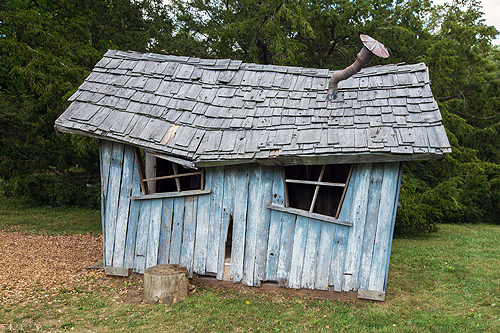Steel or Wood?
Traditional wood-frame construction has long been the standard for building owners. This is especially true in the residential market. However, over the last several decades, the benefits of steel construction have initiated a shift, particularly in non-residential segments of the market, where prefabricated steel now makes up the majority of new building construction. Here are a few reasons why.
Longevity
Wood buildings are known to deteriorate over time. Weather, wind, moisture and pests will corrode wood surfaces, causing warping, cracking and rotting. Moisture in particular, as it fluctuates, will cause wood to swell and contract. Over time, this will cause beams to crack, warp, sag and decay. As this occurs, nails will loosen and fall out, reducing the stability of the structure. If not repaired and replaced regularly, wood surfaces will become unsightly and unstable, reducing resale value and increasing the potential for partial or total collapse.
Steel, on the other hand, is known to last for decades, retaining its structural integrity and visual appear with little to no maintenance required. It is entirely unaffected by fluctuations in moisture.
Flexibility
Prefabricated steel structures can be customized to meet the needs of any business or personal buyer. They are also designed with expansion in mind, which is helpful for any small business operation that will someday require additional space.
Maintenance
Wood buildings require frequent upkeep. Without repairs of damaged, rotting or pest-infested surfaces, and without repainting of exterior surfaces facing the wear of sun, rain, wind and other weather, wood will quickly deteriorate aesthetically and structurally.
With steel, 1-2 annual maintenance checks will suffice. Washing exterior surfaces, clearing gutters and removing snow and ice is generally enough to keep your structure in peak condition for decades to come.
Weather
There is a reason why steel buildings are used as storm shelters and to house expensive aircraft and construction equipment. Steel is designed to bend without breaking, making it the best choice against wind, even when it is tornadoes and hurricanes, and the best choice to resist the weight of snow and ice during winter storms. There is a misconception that metal is dangerous in the event of lightening strikes, but steel is actually safer than wood. When struck, steel’s low electrical resistance spreads the resulting heat across its surface and grounds the electricity.
Fire
This one is simple; wood burns very easily and very quickly. Not only does this put you and your property in danger, it also increases your insurance premiums. Steel buildings don’t share this risk, and the insurance companies adjust their premiums to reflect that. In the event of wildfires or accidents, a steel building provides safety and savings that wood just can’t offer.
Pests
Termites are probably the first problem that comes to mind when you think of wood buildings. These, along with carpenter ants and powderpost beetles, are insects capable of destroying dry wooden panels. When moisture is introduced, wood becomes vulnerable to dry-rot fungi. Pole barn trusses make the perfect perch for birds, and plenty of animals are happy to chew through wooden surfaces, like possums, rats and raccoons.
Again, with steel, none of these problems apply. Wood-destroying insects don’t bother with steel. The lack of trusses in clearspan steel construction leaves nowhere for birds to land. And if you find that any wildlife has gnawed through a steel wall, you’ve got bigger problems to worry about.
Price
Steel buildings last longer than wood buildings. They’re cheaper to insure and require less maintenance and repair. Because they are prefabricated, they require less manpower and time to erect. They are easier and cheaper to expand. They are easier and cheaper to heat and cool.

